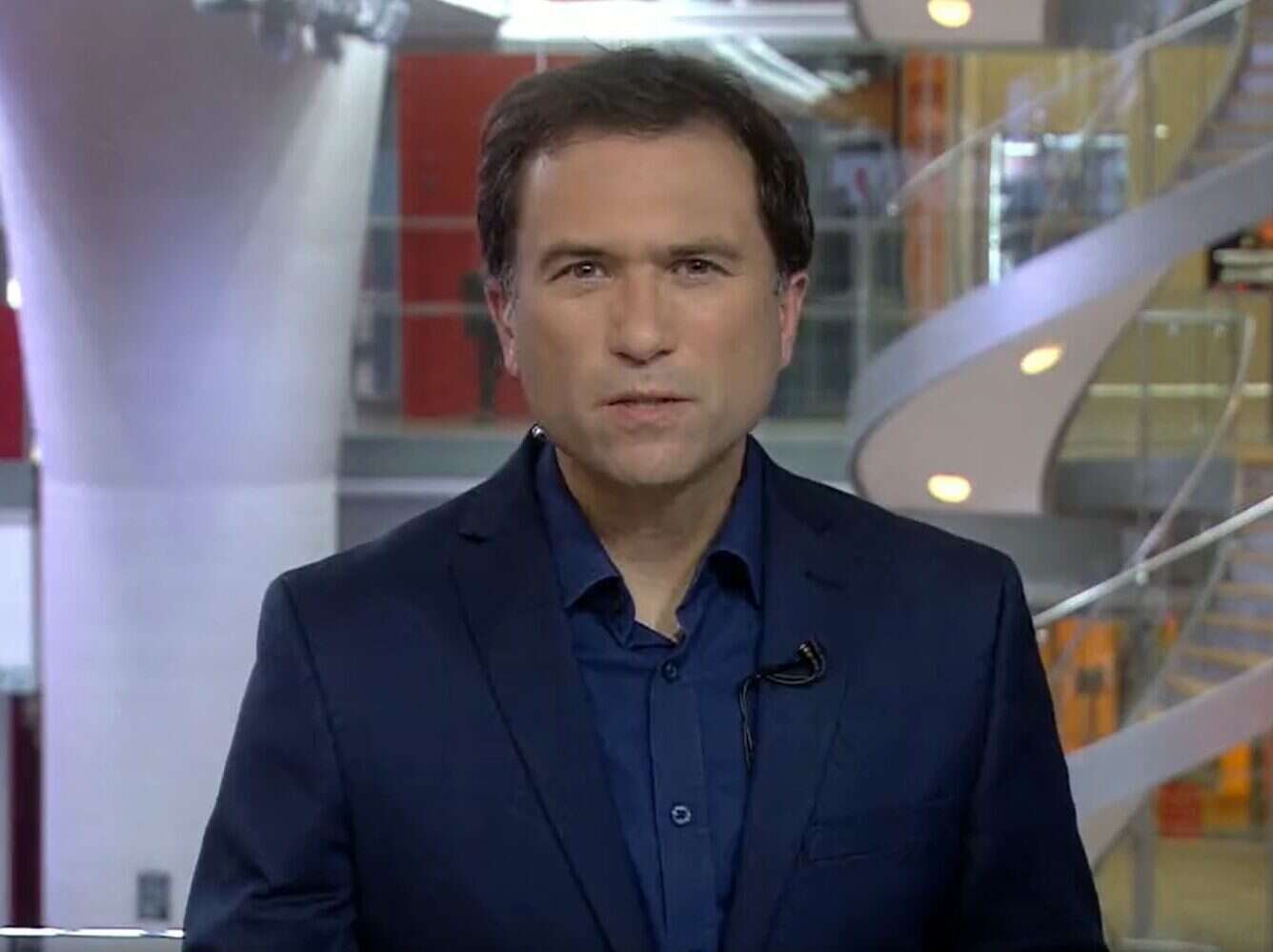
BBC News presenter Ros Atkins has said that change in the news industry is a “necessity” if it wants to survive because “news is not a given in people’s lives” anymore.
He also revealed he spent a day planning a popular Twitter thread on his history as a drum and bass DJ to try to make a BBC Radio 6 Music mixtape go viral.
Atkins (pictured) was speaking at the opening of the Society of Editors annual conference on 11 May and set out seven ways news organisations can effectively change the way they report the news.
He told the conference: “News is not a given in people’s lives, it can’t be assumed that people will seek to learn about their world via journalism, it can’t be assumed that people understand and value the way journalism works… It also can’t be assumed the way we tell stories is the way that people want to hear them.
“In other words, our place in people’s lives is not a guarantee. So when we think about the need to innovate, reimagine, to restructure what we do, it’s not because change is fun, creative or exciting. Of course, it can be all of those things. But for me, this feels like a necessity.”
Atkins has shot to popularity over the pandemic after releasing a series of explainers for BBC News that went viral on social media in the aftermath of the Partygate scandal.
His pieces regularly see hundreds of thousands or even millions of views. One recent explainer in February on the invasion of Ukraine saw over three million views on Twitter alone.
“So I’ve got a list for you. Maybe it’s useful, and I apply these whether I’ve got a one-off idea for a story on the day or a longer-term idea that might take months or even years to come to fruition,” he said.
“The first thing on my list is: what problem are we helping to solve? Journalism is in some ways a service. And if we can’t identify the problem that we’re helping someone solve, then perhaps this journalistic idea isn’t one we should be pursuing.
“The second thing on my list is: why is this different? An old editor of mine used to say we’re making news for people who know the news. If we’re not adding something beyond the basic facts of the story, perhaps that’s not enough.”
He added: “The next one would be: we should show our journalism. Coming back to my point that we can’t assume people know the value of it, we need to once again restate what we do. That means not just asserting things have happened, but providing evidence clearly. So people can see how we draw those conclusions.”
“The fourth thing on my list is making sure your work has a digital and social dimension. This might seem obvious, but it’s worth reiterating. If we’re spending money on journalism that has no digital dimension, we should ask hard questions about whether that is money well spent. And then if we’re making digital content, then we have a plan for how this will be shared by people,” he went on.
“Someone referred to the drum and bass mix I did for BBC Radio Six Music. Now, that’s not news. But it’s quite an interesting example. The first thing I had to do was do a good mix…. But just making a mix that was good wasn’t good enough. I spent a whole day before it went out plotting a thread on Twitter, which I thought would have a chance of going viral.”
Atkins joined the BBC in 2001 as a news producer for BBC Radio Five Live, before joining the BBC World Service as a presenter and eventually becoming the presenter for Outside Source.
Outside Source, which Atkins still presents, heavily uses social media in the production, presentation and distribution of its stories.
“The next thing on my list is the power of multidisciplinary teams… When you have an idea put a small multidisciplinary team behind it as soon as you can, it has the power to change the idea and change the organisation,” Atkins went on.
“The final two things on my list are: what’s your definition of success? Quite often when there’s a pressure to innovate and do things because we feel we need to do it. That’s okay but we need to have ways to measure if it’s working.”
“The next thing I will say… is how are you going to tell a story… we can see the digital revolution as a distribution revolution, a different way of getting things to people but actually it’s a storytelling revolution,” Atkins said.
“We’re living in an age of extreme creativity and in news, we need to match that. We should look far and wide for storytelling inspiration.”
Image: BBC
Email pged@pressgazette.co.uk to point out mistakes, provide story tips or send in a letter for publication on our "Letters Page" blog
